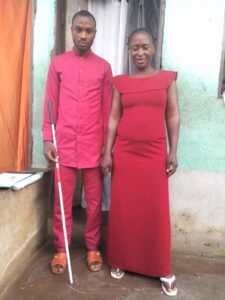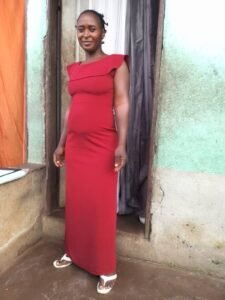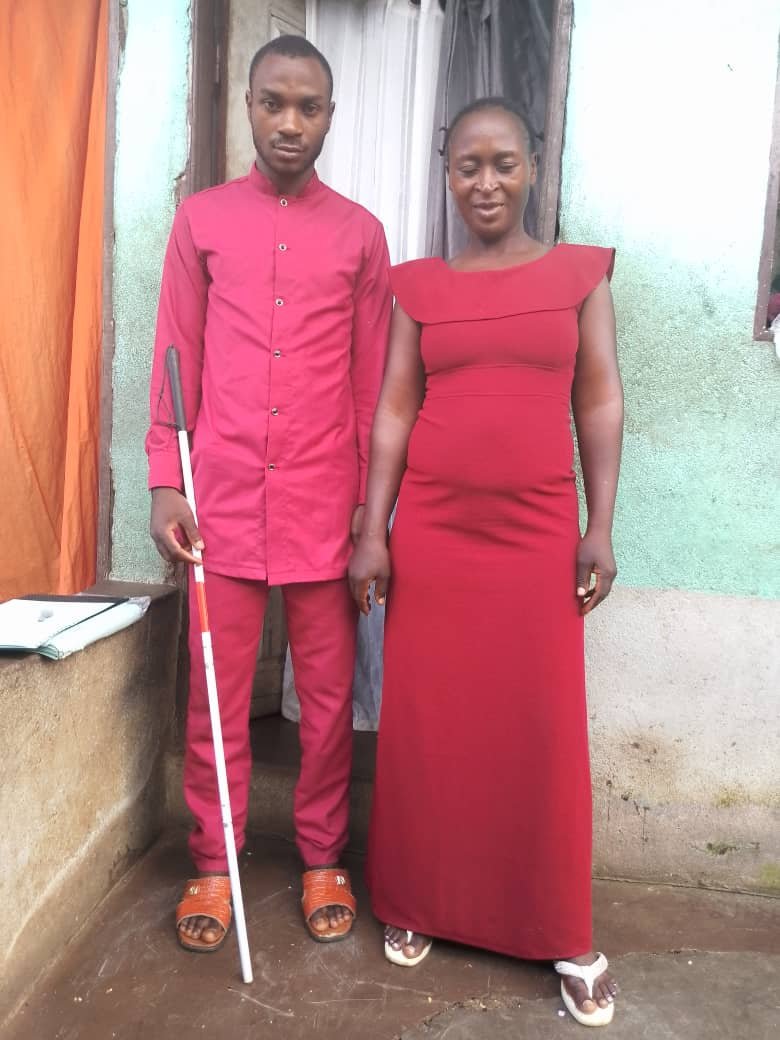Miracle Nkemta (Student Journalist on internship,) Cameroon.
Much is said of the challenges persons with disabilities face accessing formal education in Africa but very little is done to encourage parents of these persons. Across many African communities, birthing a
disabled child is an insult to the parents. Sometimes, society accuses especially mothers of disabled children of having been punished by ancestors for their infidelity in marriage. Most families of disabled children often become a laughing stock and living with such stigma is never an easy task for most parents. September each year leaves parents of children with disabilities a difficult equation to solve. It
is back to school period and the parents of few disabled pupils and students fortunate to access formal education in Cameroon are in tears.
“I am happy I didn’t kill my blind son as advised when I gave birth to him,” reveals mother of blind son in Bamenda, Cameroon’s Northwest region.
She recently opened up to DNA in an interview that at the age of three weeks, her own mother labeled her visually impaired son a curse and misfortune to the family, immediately encouraging her to
terminate the child. “I thank God for my husband who shouted me down and said anytime he did not
find our son, I will answer with my own life,” she says, adding the very child he almost killed is now a high school teacher and bread winner for the family. Her identity and that of her son is concealed for professional reasons.
Not every parent can resist the temptation of accepting and presenting a disabled child with equal opportunities as their non-disabled peers. This is the puzzle most parents in Cameroon find themselves in as far as sending children with disabilities to school is concerned. For parents with disabled children living in Cameroon’s Northwest and Southwest regions (Anglophone Cameroon) plagued by an armed
conflict, the chance to have their disabled children seat in class is even slimmer. Having food to eat every passing day seems to be a bigger head ache than the worry over education. This is owing to the raging Anglophone armed conflict now nearing eight years.
The conflict started in 2016 following protests from teachers and lawyers who demanded better working conditions from the country’s francophone dominated government. What started as a socio-
professional crisis soon escalated to an armed conflict in 2017. Since then, over six thousand persons
have been killed including persons with disabilities according to Amnesty International. Access to basic
services such as food, portable water, shelter, healthcare and education has been extremely
challenging, a situation Human Right Watch blames on non-inclusive humanitarian schemes.
Deborah Nji, a widow affected by the Anglophone conflict is one mother of a disable child who prefers to go hungry in order that her blind son receives the best education possible. A mother of five children with the eldest being 24 year old blind Meh Becajum, Deborah was in Weh, a small village in Menchum division of the country’s conflict ravaged Northwest region when men in military uniform raided the locality in search of separatist fighters one fateful afternoon, a day her tears almost formed a river. The
crying was because she lost the only shelter covering her and her five children. her house was among
hundreds of others set on fire by the men in military attires. Not even losing her house reduced her zeal to have her blind son go to school despite her poor financial status. She had largely depended on subsistence farming and always sold some of the crops to sustain the education of Becajum and his four
siblings. If there was one thing which became glaring after the razing of her house, it was that living in the village was no longer safe for them. "We ran into the bush for safety and when things seemed calm, and when we came back they had burnt our house to ashes. we suffered for several months before my sister sent me some money which we used to flee to Buea,” she recounts, her eyes filled with tears.
Now an internally displaced widow with her five children in a far away city, Buea which is about 13 hours drive from her Weh village where she had lived all her life, Deborah knew it was never really going to be an easy task settling down and having her children return to school after spending four years home. This
was in 2020, nearly four years in to the Anglophone conflict.

“I started hawking boiled meat and later boiled groundnut and now I sell pancakes which take much time making it difficult for me to sleep at night,” Deborah explains.
Coping with the hardship brought about by the raging armed conflict and the negative societal perceptions is a serious challenge for disabled parents like Deborah Nji, and sponsoring their children through formal education is difficult than imagined. The 2024-2025 academic year is already underway and as usual, Deborah wants the best for her visually impaired son. For now, she has purchased him Braille writing materials while still raising funds for his house rent and transportation fair to and from school. Her pancake business at the moment, is the only source of income and she says it is intensely difficult because there are four other children to Cater for.
In 2023, the Cameroon Baptist Convention in a study which was presented during a conference in
Yaounde, Cameroon’s capital city unveiled some of the challenges associations of parents of children
with disabilities face sending the children to school. Visible in the research were factors such as obtaining National Disability Cards, having their kids accepted in schools, coping with stigma and securing financial support. These challenges continue to impede access to formal education for persons with disabilities. “The education of my blind son is more expensive than that of his four other siblings put together,” intimates Deborah whose son is a final year undergraduate student of Public
Administration, the University of Buea.

While strongly encouraging parents like her to make efforts to send their disabled children to school, Deborah admits they need a lot of support, both psychological and financial to be able to provide education to children with disabilities. The ongoing conflict, she says has worsen a bad situation.
Addressing the issue of sustaining the education of disabled children, the director of the Buea School for
the Death, Aloysius Bibum says support is paramount, adding the conflict has weaken financial systems especially for parents who depended on farming to educate their children. “Another severe outcome of
the Anglophone conflict has been the displacement of whole families, causing them to lose their farms
and other sources of income, thereby leaving them to struggle to pay school fees of their children,” he
regrets. The Buea School for the Deaf director believes the significant drop in the enrollment of pupils with hearing impairment in his institution since the start of the conflict justifies the depth of hardship it brought on parents.
Children with disabilities are humans with rights and they too deserve education no matter how tough
things seem to be. This is because education is an inalienable right. The High School Teacher whose
mother almost killed him at the age of three weeks has a word to parents of children with disabilities; “Every disabled child too needs love and care. Just like I am now providing for my mum who almost killed me, that child you are refusing to send to school is your future bread winner. Invest in them and
you can be sure of a good tomorrow”.
Cameroon Anglophone Conflict: Parents of Disabled Children in Tears as Academic Year Gets Underway.
